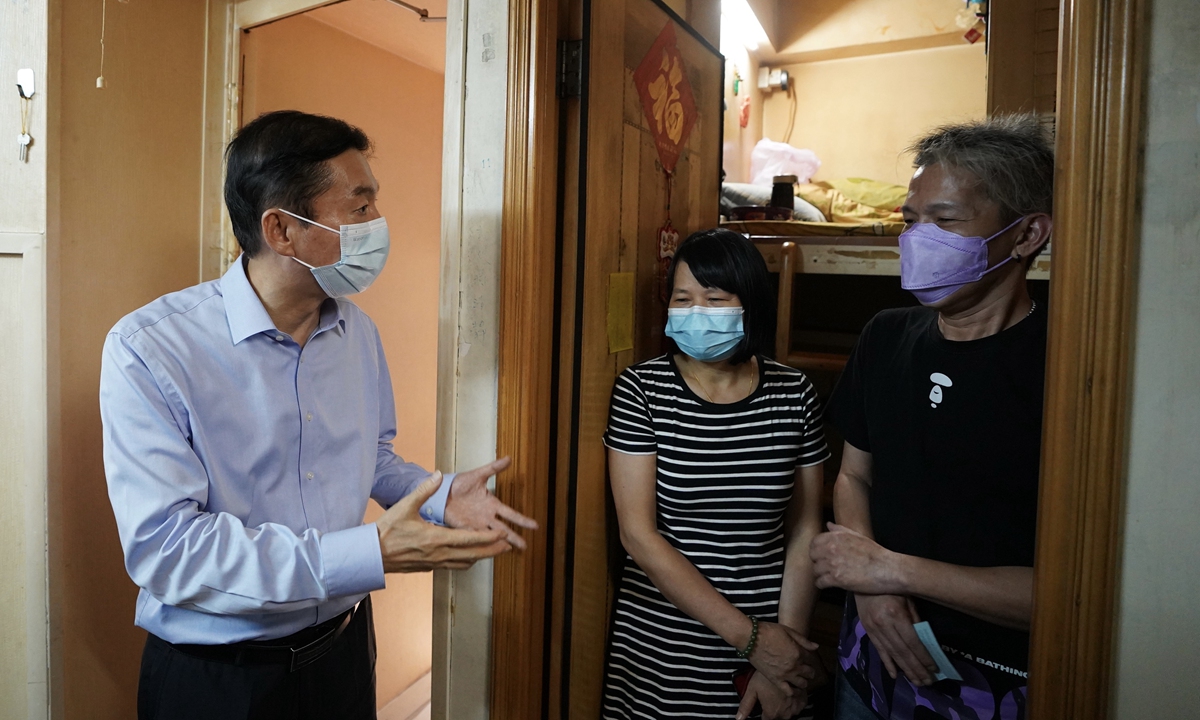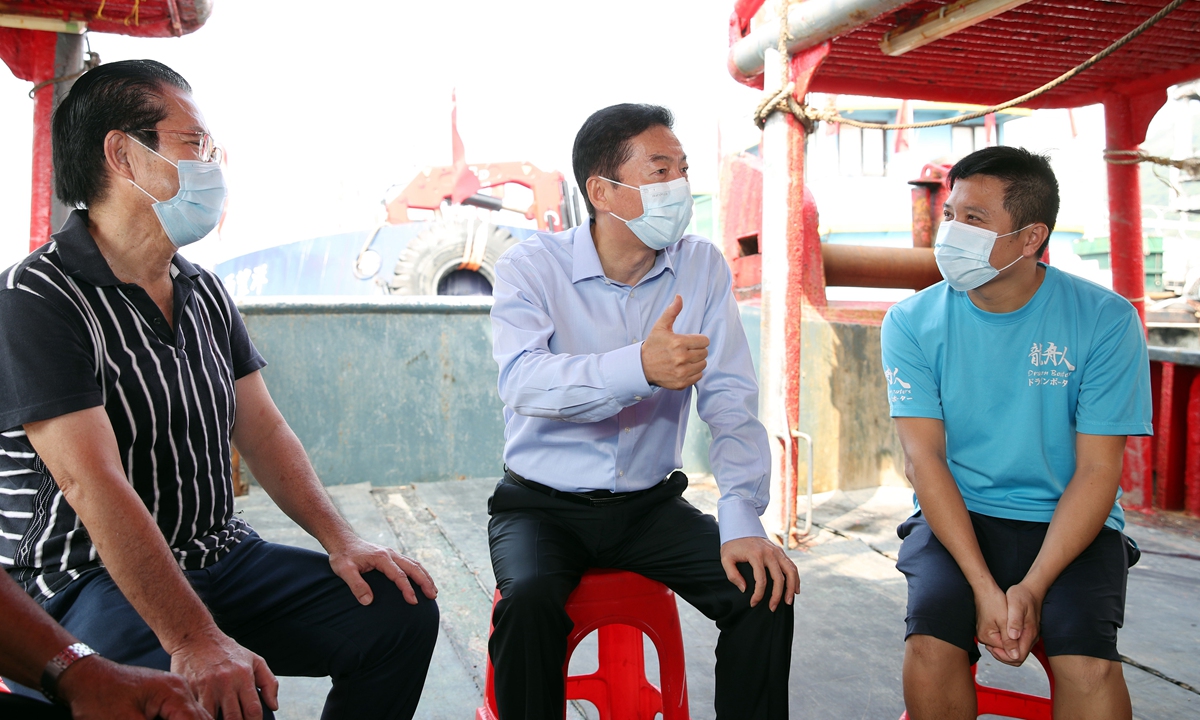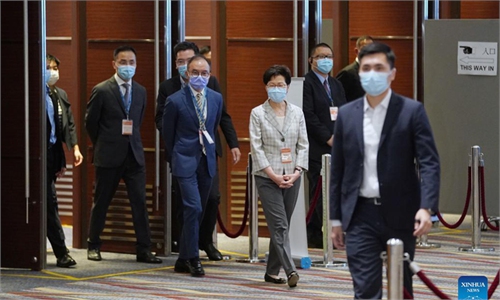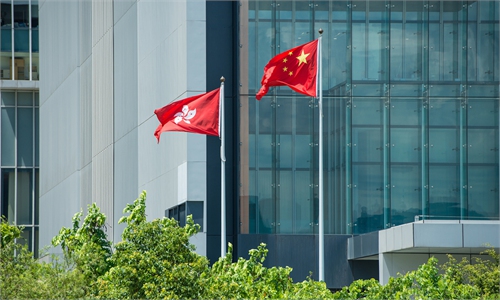‘Who should HK’s devt serve?’ Head of liaison office says he’s saddened by ‘cage house’ living condition

Photo: Courtesy of Liaison Office of the Central People's Government in the Hong Kong Special Administrative Region
Luo Huining, the head of the Liaison Office of the Central People's Government in the Hong Kong Special Administrative Region, paid a visit to some grassroots communities in Hong Kong including the notoriously crowded "cage houses," during which he said that the central government is concerned about Hong Kong's housing problems and stressed that Hong Kong's development must be people-centered.
Luo visited several residents who lived in "cage homes" in Mongkok of Hong Kong's Kowloon region on Thursday, one day ahead of China's National Day, according to an article posted on the website of liaison office. The article described the homes as a space of less than 19 square meters with 11 beds for rent, which means that each person lives in an area of less than 2 square meters on average.
Luo was quoted as saying that his heart sunk at the sight of such crowded living conditions, while saying that property has become Hong Kong's largest well-being issue.
He said what troubles the Hong Kong compatriots also catches the attention of the central government.
Luo noted that although the solving of Hong Kong's housing problems involve many issues like land, arrangement and investment, the fundamental issue is -"who should the city's development serve?"
"As long as the people-centered development philosophy is established, the specific problems can be solved gradually," he said.
Luo's comments spark speculations that the central government might move to help Hong Kong solve its housing problems, which has plagued the city for many years. Currently, about 200,000 Hong Kong people live in such cage homes, and it takes about 5.7 years for Hong Kong residents to successfully apply for public houses on average, the aforementioned article noted.
Thomas Yeung, vice dean of the Futian School of Finance and an expert based in Hong Kong, said that cage homes are the "dark side" of Hong Kong's flourishing economy.
"To solve Hong Kong's house problems, the government should shoulder responsibilities and become the 'biggest property developer,' instead of letting property tycoons inflate house prices," he told the Global Times. "It's a very positive thing if the central government can move to work on Hong Kong's property market aporia, such as encouraging the HKSAR government to seek land more actively (for building public accommodation)."

Photo: Courtesy of Liaison Office of the Central People's Government in the Hong Kong Special Administrative Region
Apart from cage home residents, Luo also visited some local fishermen, several Hong Kong entrepreneurs as well as shop owners to know about their work and the current business conditions, the article noted.
During his visit to a fishing boat in Hong Kong's Aberdeen Typhoon Shelter to learn about local fishermen's work and living conditions, he inquired about questions such as how long it took to do fishing on the South Sea and how do they arrange their children's education. His visit was also warmly welcomed by the fishermen, who said that it was the first time in 20 years that a liaison office chief visited the fishing boat.
Luo also stressed that the central government has attached high importance to Hong Kong's economy and well-being, and has rolled out 21 preferential policies targeting different industries.
"The fundamental objective (of those policies) is to let Hong Kong residents live a good life. Only when Hong Kong residents have a better life and better sense of happiness can the city have good development," he said.
He also promised to visit more grassroots communities and invite the fishermen to visit the liaison office in the future.
Global Times


